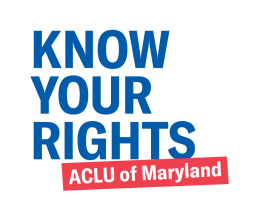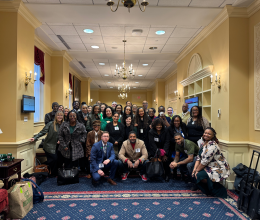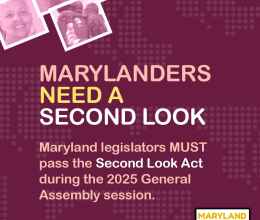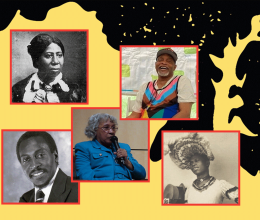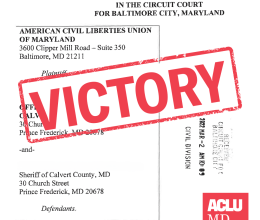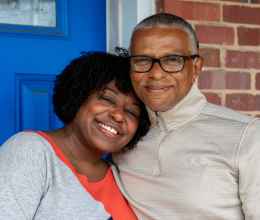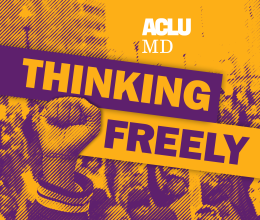
BALTIMORE, MD – Encountering the police or ICE is already a stressful experience, which for People of Color and/or those with mental illness could also turn dangerous quickly. The Know Your Rights program at the ACLU of Maryland began in 2015 and over the years, with the help of volunteers, has informed thousands of people across the state about what their rights are during law enforcement interactions. On this episode of Thinking Freely, we are joined by KYR trainers Kimi Washington and Gus Griffin, as well as Amy Cruice, Director of the ACLU of Maryland’s Know Your Rights program, who will discuss why it is vital to know your rights and what to do when your rights are violated.
Thinking Freely is a podcast that seeks to give its listeners more power by informing them of the latest issues and providing roadmaps for how they can make a difference. Last month’s episode focused on ACLU of Maryland’s priorities during COVID-19. On this episode, we will focus on one of the key resources that the ACLU of Maryland provides residents and explain the impact sharing this knowledge has in communities.
Kimi Washington said: “What this program does is it empowers residents and citizens to know what to look out for, even when and if their rights are being violated at that moment, so they can express and articulate how they were violated based on their knowledge.”
Everyone has basic rights under the U.S. Constitution and civil rights laws. Having knowledge about these rights gives residents more power and confidence for the next time they must encounter law enforcement. The Know Your Rights program is a free, two-hour participatory training with legal information, questions and answers, and a role-playing exercise. These trainings include information about what to do during police and ICE encounters, students’ rights, the right to vote, and more. What is particularly unique about the program, though, is its racial consciousness perspective.
Amy Cruice said: “We live in a society right now where far too many Black and Brown bodies are unfortunately abused by police in ways that white people don’t have to experience. So, when we talk about rights, we are very honest about the differences in how different people with different skin colors may be able exercise those rights and the consequences that might come along with that.”
It’s still disheartening that everyone may legally have the same rights, but in practice they are not the same. Gus Griffin said: “We’ve had more than enough martyrs. Getting to the next day is really the most important aspect of these trainings.”
The free Know Your Rights trainings are guided by the need to save as many lives as possible. Although even if Black and Brown people were to do everything right, they could still face deadly consequences in a law enforcement encounter.
Griffin said: “We shouldn’t have to police the police but, in reality, we do. There are larger, systemic and structural factors that are at play here as opposed to an individuals’ behavior.”
No one can assume officers will behave in ways that protect your safety and respect your rights. That is why the ACLU of Maryland created and provides the Know Your Rights program, which teaches Maryland residents about the law and offers strategies for handling police encounters. Hopefully, through using these strategies, Marylanders may be able to reduce risk to themselves.
If you would like to request a free Know Your Rights training, click here. Thinking Freely strives to provide Marylanders with information that will protect them and lead to activism. Listen to this episode of Thinking Freely to learn your rights and your options for taking action. Listen here.
EPISODE 10: Know Your Rights: What to do in Police Encounters
SUBSCRIBE ON: Apple Podcast | Spotify | Google Play | Stitcher | SoundCloud | Listen Notes | RadioPublic | Pandora
###
